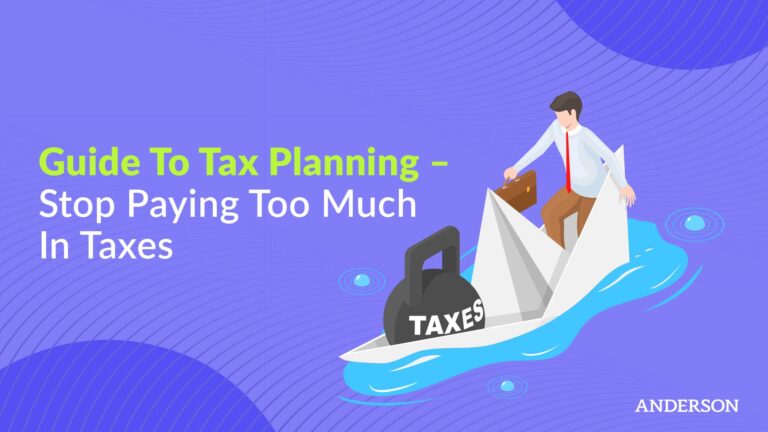Updated October 9, 2021
Business entities can own land, hire employees, and are generally considered separate from their owners. In some cases, these legally established businesses are disregarded for tax purposes. There can be benefits and disadvantages to owning a disregarded entity. If you are considering a disregarded entity for tax purposes, there are some factors you need to consider.
7 Things You Need to Know About a Disregarded Entity
- Disregarded Entities
- Pass-Through Taxation
- How Disregarded Entities Simplify Tax Filing
- Limited Liability Protection
- Impact on Investors
- Understanding Additional Taxes for Disregarded Entities
- Employment Considerations
An entity is something that is considered separate or distinct. There are many different types of business entities. These include corporations, partnerships, S-corporations, limited liability companies (LLCs) and sole proprietors. Each business structure has different tax implications and other benefits or disadvantages. They are established in the state where they operate and are subject to those state laws and requirements for formation.
1. Disregarded Entities
A disregarded entity is a business that the Internal Revenue Service (IRS) and states ignore for the purpose of taxation even though they are separate from the business owner. The business income and subsequent taxes are passed through to the owner to be filed with their income taxes.
The most basic business structure is the sole proprietorship in which the owner and the business are one and the same. A sole proprietorship is not a disregarded entity because the business does not exist as a separate entity from the owner. The owner is subject to the taxes on business activities but does not have the legal protection that a disregarded entity might have. In the case of a lawsuit against the owner’s business, the owner’s personal assets could be in jeopardy. Separating the business from the owner for liability and other reasons leads to the creation of separate business entities such as the corporation and LLC.
Can a corporation be a disregarded entity? When there is more than one business owner, the entity is generally not disregarded for tax purposes. Corporations have liability protection, but also pay taxes on business income before it is passed on to the owners or shareholders. Then, that income is taxed again at the owner’s level. The process is known as double taxation and highlights the key difference between a disregarded entity vs corporation. The limited liability company (LLC) structure allows for liability protection without double taxation. Instead, like a sole proprietorship, the income and taxes are passed down to the owner.
When there is more than one member in an LLC, it can either be a partnership or elect to be taxed as a domestic corporation or S-corp. Those entities can claim eligible business deductions and expenses before passing the remaining income and subsequent taxation to their owners. When an LLC has only one owner it is known as a single member limited liability company (SMLLC) and the SMLLC is then considered a disregarded entity.
Living revocable trusts may also be considered disregarded entities. A trust is separate from the owner or grantor, but the grantor can withdraw assets from the trust depending on the grantor trust rules. The trust provides legal protections and other benefits to the owner, but the profits from the trust are passed through to the owner who must also pay taxes. Trusts can also be used to buy land and real estate. A real estate investment trust (REIT) is a separate legal entity that can be considered a disregarded entity in some cases. Assets such as real estate and rental properties may also allow a taxpayer to claim additional deductions.
2. Pass-Through Taxation
The benefits of pass-through taxation start with avoiding the double taxation that corporations face. However, this may limit the business deductions that the owner can claim on their personal income tax return. Partnerships, S-corporations, and some LLCs can be pass-through businesses, but not disregarded entities. Taxable income from these separate business entities are passed to owners to be taxed on their returns, but the IRS does not ignore those business entities for various reasons.
An SMLLC has pass-through taxation. The states it operates in, as well as the IRS, disregard the entity for tax purposes. Also, the Tax Cuts and Jobs Act passed recently gives a tax deduction on pass-through business income. However, due to the complex nature of taxation on both state and federal levels, it is a good idea to consult with a tax professional to find out how your business can benefit.

3. How Disregarded Entities Simplify Tax Filing
The IRS and state where the disregarded entity is located will disregard the eligible business entity and look to the owner for taxation. This simplifies how the owner must file and pay for taxes. The Internal Revenue Code can be complex, and entities that are not disregarded must file additional paperwork and provide supporting documentation. An LLC tax return depends on how the LLC elects to be identified, either as a partnership, corporation, or disregarded entity. Corporations must file taxes as a business and then any income passed to the owner or other shareholders is taxed again. S-corporations and partnerships pass profit to their members, who are taxed on it but must also file documentation as a business. A single member LLC disregarded entity would be able to claim the business income on their personal tax return like a sole proprietor, but they still get the liability protection and other benefits of a separate legal business.
4. Limited Liability Protection
As a sole proprietorship, the owner is liable for any legal issues that may arise. In the case of a lawsuit, the owner’s personal assets could be seized to cover business debts. To avoid this, you could incorporate or form an LLC. Since the other business structures are considered separate legal entities, it limits how courts and lawyers can go after an owner’s personal assets. A single member LLC (SMLLC) is considered a separate legal entity and afforded liability protection even though it can also be a disregarded entity for tax purposes.
It is important to note that there are formalities and legal issues that must be met to keep limited liability protection. These requirements depend on the state where the entity is formed. At a basic level, you must be able to show that the business is truly separate from your personal assets. This includes using a business account to handle the business finances and not dipping into it for personal purchases. There are other ways that the courts can pierce the corporate veil and go after personal assets. Consult with a tax professional or lawyer today to ensure your business is properly protected.
5. Impact on Investors
An issue with disregarded entities, such as single-member LLCs (SMLLCs), is that investors may be hesitant or restricted from investing in them. In general, corporations or S-corps may offer the best investment opportunities for investors. Depending on your specific business needs, you may want to incorporate or choose another business structure. Investors will look at your federal tax status, and technology startups may not achieve the best funding from a disregarded entity. If you are considering starting a business, carefully consider your business goals and the tax implications associated with each type of structure.
6. Understanding Additional Taxes for Disregarded Entities
Besides income tax, business entities must pay a range of other taxes depending on how they are structured. For example, these can include self-employment taxes, excise taxes, and payroll taxes. An LLC disregarded entity such as the SMLLC, as well as non-disregarded sole proprietorships, may have to pay high self-employment tax. LLC taxes for self-employment include both Social Security and Medicare taxes and can go as high as 15.3% on top of both state and federal taxes. To avoid this, the owner can also choose to be considered an employee of the business. However, this creates other issues. How you elect to be reimbursed by your company can impact your social security benefits later in life. Payroll tax laws require the company to also be responsible for paying taxes on wages given to employees. However, some of the taxed amounts are deductible as a business expense. For more information, be sure to read our article on tax strategies for real estate purchases.
7. Employment Considerations
A business that employs people must obtain a federal Employer Identification Number (EIN). For disregarded entities, the owner’s SSN may become the EIN for the business. Employers are also responsible for providing employees a W-2 Wage and Tax Statement annually, as well as a W-3 to the Social Security Administration.
As mentioned earlier, becoming an employer carries other issues with it, including payroll taxes. The amount you choose as a salary will also impact you. One way around the self-employment tax might be to form an S-corp and take a smaller salary, and then also take a distribution from the company. However, for tax purposes, the salary must be reasonable or it becomes illegal. To be reasonable, it should compare to what other professionals doing similar work are making, but these considerations take into account many other factors as well. For more information on how to minimize your tax burden and free up more of your money consult with a tax professional today.

How to Set Up a Disregarded Entity
There is no disregarded entity form that you need to fill out. The IRS automatically considers a single-member limited liability company to be a disregarded entity. To set up a disregarded entity, you only need to follow state guidelines when forming an LLC. Most commonly, this means filing some paperwork with that state and paying the required fees. The paperwork you file depends on the business structure you are attempting to form. Since this is state-specific, you must ensure you are meeting the eligibility requirements and setting things up correctly. The general steps include deciding on a disregarded entity name and registering it. You may also need to prepare articles of organization or an operating agreement.
To maintain your limited liability protections, make sure to set up a separate business bank account. To ensure you are following the right steps, it may be worth your time to reach out to an attorney. If you are employing yourself or others you must also obtain a federal disregarded entity EIN or Employer Identification Number. An owner of a disregarded entity LLC may elect to change from a disregarded entity to a partnership or corporation by filing Form 8832 with the IRS. A disregarded entity election is not necessary as it automatically applies to SMLLCs.
What is a Disregarded Entity for Tax Purposes?
A disregarded entity LLC is a separate business entity that is ignored for the purpose of taxation in a given tax year. These LLCs are created at the state level as separate entities, but for both state and federal taxes, the business is disregarded and the owner is responsible for the taxes. Single-member LLC (SMLLC) taxes are similar to what a sole proprietor would see since business income is reported on the owner’s personal income return.
It is interesting to note that in states with community property laws where a spouse is also listed as a joint owner of an LLC, they may still qualify as a disregarded entity instead of a partnership. Also, LLCs can be considered a foreign disregarded entity, if the owner was a foreign corporation, and would be taxed on the return of the foreign entity.
There are pros and cons to owning a disregarded entity. The pros include pass-through taxation, easy tax filing, and limited liability protection. The cons include having a harder time obtaining investors as well as possibly paying self-employment taxes on top of other business taxes. A disregarded entity that employs others may also be required to use the owner’s personal SSN as the Employer Identification Number (EIN) for employment taxes. This can be done with Form W-9 Request for Taxpayer Identification Number and Certification submitted to the IRS.
To find out more about if a disregarded entity is the right choice for your business structure, reach out to the professionals at Anderson Advisors today for a free strategy consultation.
To hear what others have to say about working with Anderson, click here to check out our reviews.
Bonus Video
 The greatest mistake that people make when it comes to asset protection for real estate is not understanding the risks that are waiting out there for them. This eBook reveals the structure you should follow to ensure your hard earned money is protected from frivolous lawsuits and costly tax mistakes.
The greatest mistake that people make when it comes to asset protection for real estate is not understanding the risks that are waiting out there for them. This eBook reveals the structure you should follow to ensure your hard earned money is protected from frivolous lawsuits and costly tax mistakes.











